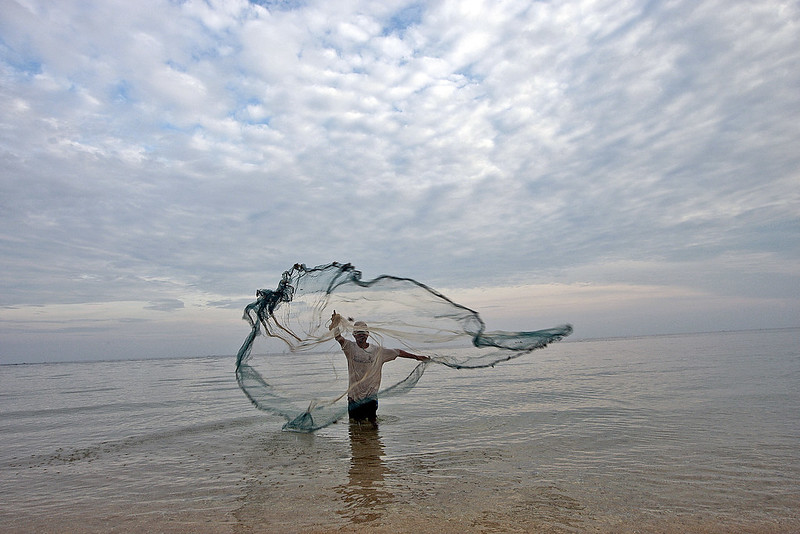Timor-Leste and northern Australia: opportunities for mutual benefit

Dili is a mere 55-minute flight from Darwin. The proximity creates a natural partnership between northern Australia and Timor-Leste that brings benefits to both countries and contributes to greater regional economic integration, including with Indonesia.
The signing of the maritime boundary treaty in March 2018 was instrumental in laying the foundations for stronger cultural, economic and trade relations between Timor-Leste and Australia, especially northern Australia. Connectivity, maritime activities, employment and education are important aspects of the Timor-Leste – northern Australia relationship. Economic diversification is a key goal for Timor-Leste, which is why creating more links with northern Australia and engaging with its economy are high priorities.
The Timor-Leste – Indonesia – Australia Growth Triangle is an initiative by the three governments to boost trade, tourism and connectivity in the region. The Australian government believes the growth triangle can bring positive developments to the northern regions of Australia, especially Darwin, while Timor-Leste would like to see more manufacturing in the country, among other developments.
An issue of high priority for the Timor-Leste government is air connectivity. Darwin boasts the only direct flights from Australia to Timor-Leste. Flights leave Darwin eight times a week, which facilitates trade, tourism and people-to-people links. However, flight costs needs to be reduced, as high prices are a major obstacle to tourism and trade. The route between Darwin, Dili and Bali has been identified by the Growth Triangle as a ‘tourism path’ that would benefit the region. Affordable flights along that route would be welcome.
In February 2018, the Northern Territory government created Team NT, designed in part to strengthen the promotion of the Territory’s economic interests internationally. One of the immediate priorities is improving air and sea links between Darwin and Timor-Leste. The NT government has begun a study on the feasibility of more passenger and freight planes.
In August this year, the Australian government announced that it would support a fibre-optic internet cable to Timor-Leste as a way of better connecting the nation to the world and boosting economic development. The cable will connect to the North-West Cable System, which runs between Darwin and Port Hedland. As one of the few nations without fibre-optic cables, Timor-Leste relies on satellite services. The cable is expected to assist Timor-Leste to develop its economy.
With the signing of the maritime boundary treaty, Australia and Timor-Leste are poised to continue to develop their relationship and joint projects, especially in the northern seas of Australia. Both countries are ready to jointly development the Greater Sunrise gas fields and have agreed on a joint patrol for illegal fishing and broader maritime security. There are opportunities for more projects and cooperation in the region in the broader context of the current debate in Australia on a forward operating base in the north, which could generate investment and employment.
Tourism and hospitality are named as areas of importance in Timor-Leste’s strategic development plan for 2011–2030.
The shared sea and close proximity provide Timor-Leste and northern Australia with a great opportunity to promote sea tourism. One example is the Darwin to Dili boat race, which began in 1973 with a few locals in Darwin deciding to sail to Dili. The event was reborn in 2010 and has been held annually ever since.
A joint report developed in Timor highlighted the real potential of cruise ship tourism in Timor-Leste. Four cruise ships are currently scheduled to stop in Dili in 2020.
Australia’s Seasonal Worker Programme allows Timorese to work in the accommodation sector in the northern regions of Australia, which helps them to get jobs, save money and invest in businesses back in Timor. From 2011 to October 2018, Timor-Leste sent more than 2,500 workers to Australia to work in agriculture and hospitality. Remittances from 2017 reached $4.6 million, averaging out to $5,900 per worker. The program also provides invaluable work experience and training in hospitality. Unfortunately, take-up of the program in the accommodation sector for Timorese is low; only two employers are currently using Timor-Leste hospitality and accommodation workers.
The Pacific Labour Scheme is a newer labour mobility program that is designed for semi-skilled workers to work in any industry in rural and regional Australia. This program provides more industries for Timorese to access, including meatworks, fisheries and cookery.
Charles Darwin University has been involved with Timor-Leste in a number of areas. One of these was leading an 18-month hospitality training program for local trainers and colleges. The capacity-building program was designed to train 15 Timorese hospitality trainers, develop a range of learning and assessment resources, and pilot the new Certificate III in Hospitality.
The university’s Research Institute for the Environment and Livelihoods has conducted a number of research studies on Timor, including on climate change adaptation, fisheries, agriculture and nutrition. Charles Darwin University is one of a number of universities in Australia providing scholarships, undertaking research and liaising with governments.
With the maritime boundary treaty implemented and finalised, the relationship between northern Australia and Timor-Leste has a promising future. Developments focusing on investment, tourism, agriculture and labour mobility in the region have the potential to benefit both nations, and to lift and diversify the Timor-Leste economy.